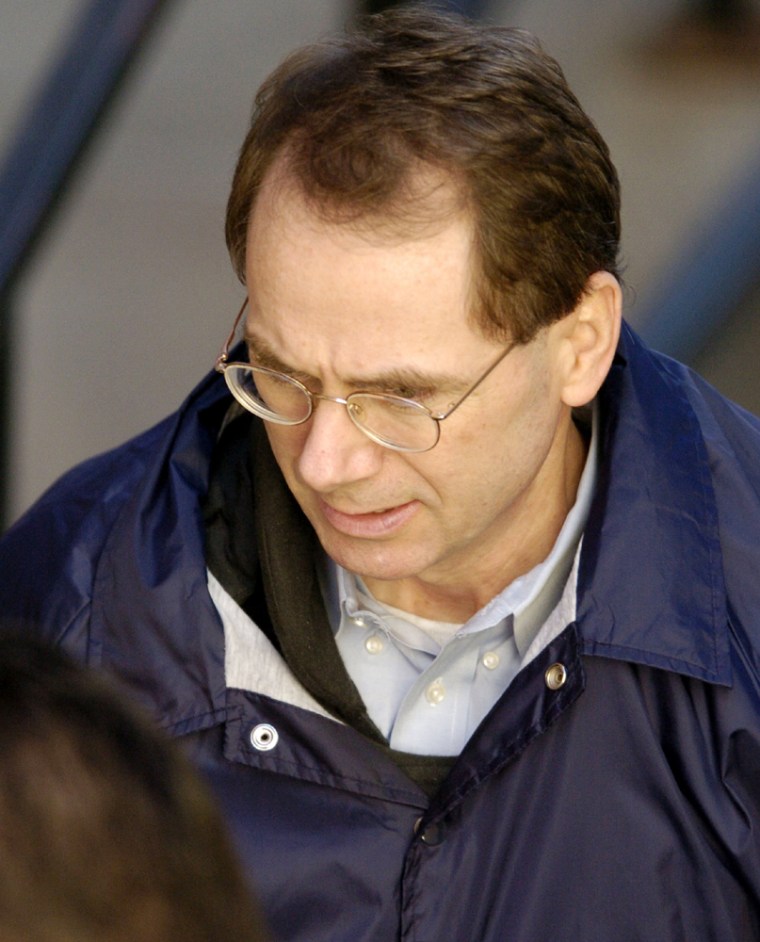The jury in Terry Nichols’ murder trial resumed deliberations Thursday on whether he will be sentenced to life in prison or death for his role in the Oklahoma City bombing.
The jury began meeting at 9 a.m., one day after it deliberated for 5½ hours and recessed for the evening without a decision.
Nichols’ jury has already taken longer to decide his sentence than it took to convict him on 161 counts of first-degree murder. But victims’ family members said they are not surprised jurors are taking longer to decide a sentence.
“They’re talking about a man’s life. It’s a big decision to make,” said Roy Sells, whose wife, Lee, died in the April 19, 1995, bombing of the Oklahoma City federal building.
Darlene Welch said she wants the jury to return a death sentence for the deaths of her 4-year-old niece, Ashley Megan Eckles, and other bombing victims.
‘The victims' families are waiting for justice’
“Putting Terry Nichols to death will not bring any of my relatives back,” Welch said. “They’re gone, but the victims’ families are waiting for justice.”
Nichols was convicted May 26 of murder, arson and conspiracy in the bombing of the Alfred P. Murrah Federal Building, which killed 168 people and injured hundreds more.
He is already serving a life sentence for the deaths of eight federal agents in the blast. The state trial began March 1 for the others killed in the explosion, including the fetus of one of the victims.
“We know he’s not ever going to get out of jail no matter what this jury decides,” Sells said.
Nichols 12-member jury is scheduled to resume deliberations on Thursday. Jurors will be sequestered during deliberations.
Deliberations began after defense attorney Creekmore Wallace made an impassioned plea to spare Nichols’ life.
“This case is about one person, this man, Terry Lynn Nichols, whether you will take his life,” Wallace said after standing behind Nichols and putting his hands on his shoulders. “It’s about whether you kill Terry Lynn Nichols, the man.”
Defense argues Nichols has capacity for good
Defense attorneys said Nichols’ life should be spared because he has become a religious man who has the capacity for good.
But prosecutor Sandra Elliott pointed to Nichols from across the courtroom and asked jurors to impose the death penalty.
“We are all accountable for what we do,” she said, her voice shaking with emotion. “There is nothing that can mitigate the deaths of 161 people.”
Wallace said jurors should not be swayed by the “raw emotion” that victims’ family members expressed during testimony in the penalty phase of Nichols’ trial.
“These people out here, these victims,” Wallace said motioning to members of victims’ families in the courtroom. “I hear that flood of tears and that flood of anger.”
But, Wallace said, “We don’t administer justice based on vengeance or ignorance of the law.”
Nichols, 49, was acquitted of federal murder charges in 1997 but convicted of conspiracy and involuntary manslaughter charges in the deaths of the federal law enforcement officers.
McVeigh described as architect of plot
The defense argued that the bombing was the obsession of Timothy McVeigh and that there was no evidence Nichols intended to hurt anyone. McVeigh was executed in 2001.
But prosecutors said the death penalty was legally justified under Oklahoma law because Nichols knowingly created a great risk of death to more than one person.
Prosecutors alleged that Nichols and McVeigh shared anti-government beliefs and planned the bombing to avenge the deaths of about 80 people at the Branch Davidian compound in Waco, Texas, exactly two years before the bombing.
“To the bitter end, Mr. Nichols and Mr. McVeigh are in it together. They were joined in purpose, joined in thought,” Elliott said. “They were buddies. They were pals in a common goal.”
